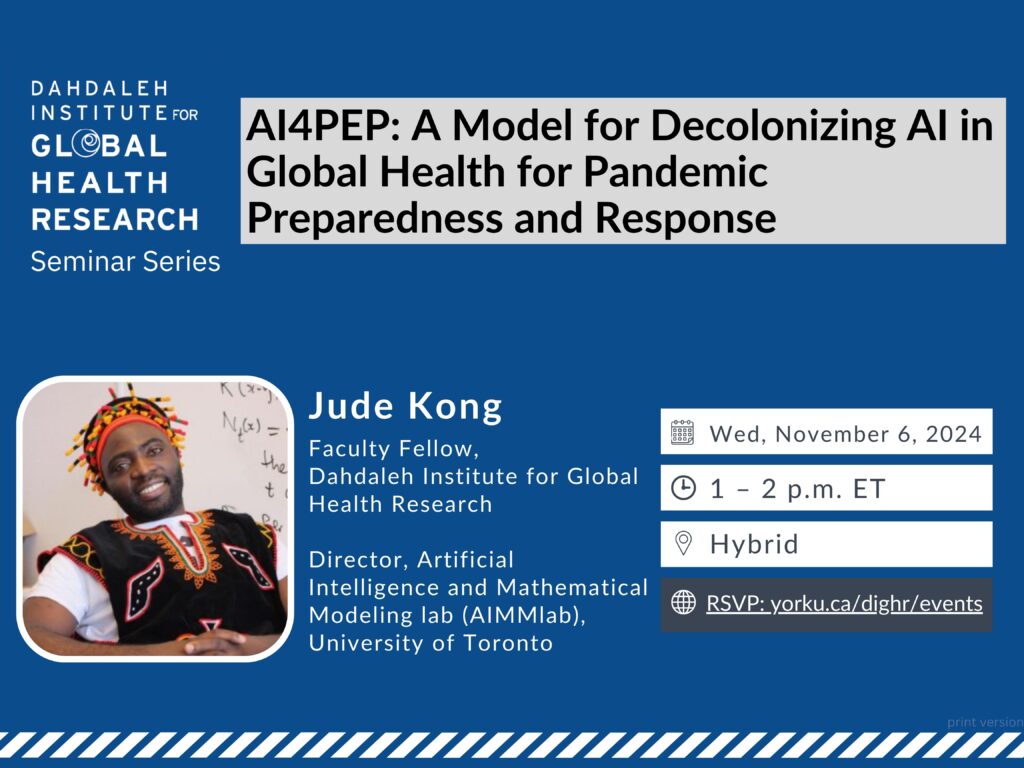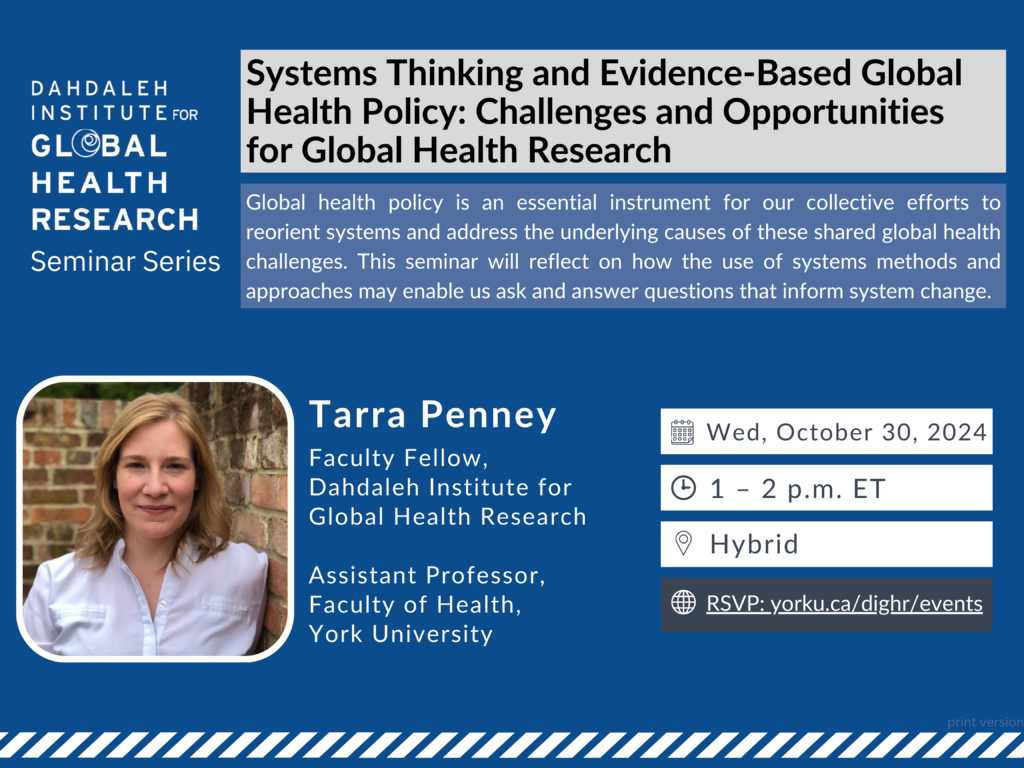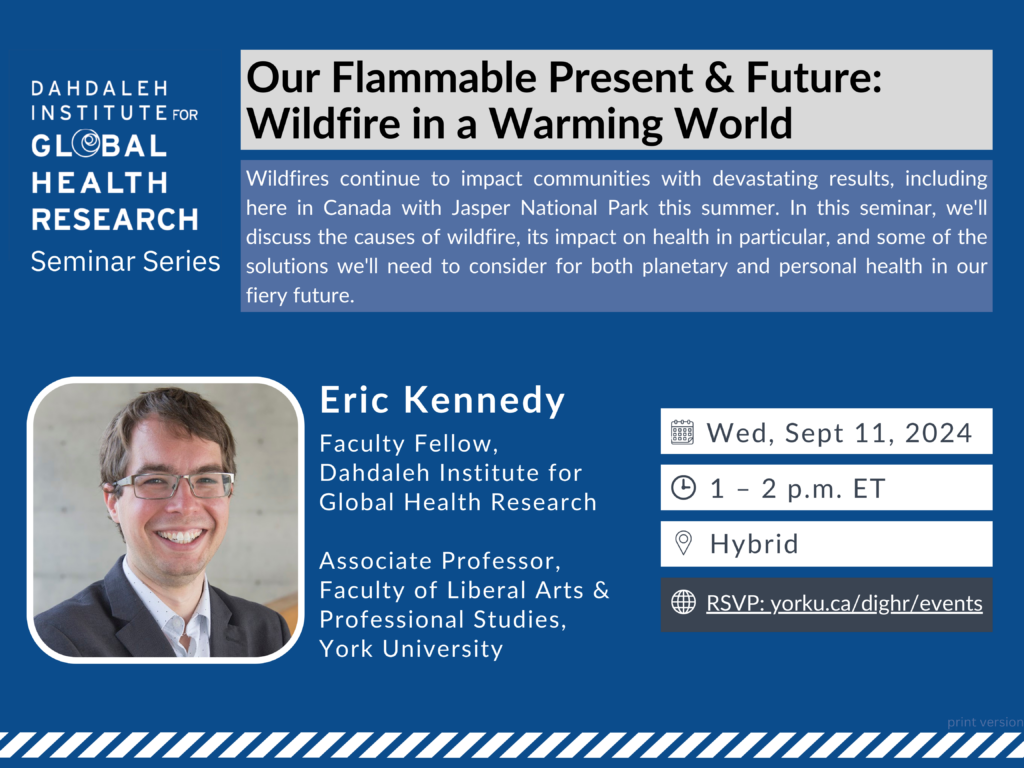Recap

Recap — AI for Health Equity: Transforming Global Pandemic Preparedness, with Jude Kong
On November 6, Dahdaleh faculty fellow Professor Jude Kong presented an overview of his work in developing and implementing decolonized Artificial Intelligence (AI) frameworks, particularly within public health contexts across Africa and the Global Sou...

Recap — Leveraging Systems Thinking for Effective Global Health Policies, with Tarra Penney
On October 30, Dahdaleh faculty fellow Dr. Tarra Penney presented on systems-based approach and how it can transform traditional methods of public health intervention. Her work seeks to address complex global health challenges by understanding and infl...
Recap – Voices on the Move Podcast Launch
The Dahdaleh Institute recently hosted the launch event for Voices on the Move, a podcast focusing on the complex relationship between climate change and migration. Hosted by Dahdaleh faculty fellow Yvonne Su and Sabrina Sam, the event welcomed partici...

Recap — Systems Approach to Address Resource Insecurity and Health Inequities, with Godfred Boateng
On October 23, Dahdaleh faculty fellow Professor Godfred Boateng examined how interconnected systems such as food, water, energy, and housing insecurity impact public health, particularly within vulnerable communities. Professor Boateng used the analog...

Recap — Are Distinctions Between Communicable and Non-Communicable Diseases Still Useful? Why We Should Care, with Paul McDonald
On October 9, 2024, York University Professor Emeritus and Dahdaleh Senior Fellow Paul McDonald asked seminar attendees to re-consider the traditional distinctions between communicable and non-communicable diseases (NCDs). He argued that, like many mod...

Recap — Storytelling and Epistemic Humility as Critical Interventions in Global Health
Recap written by Dahdaleh Global Health Graduate Scholar Alexandra Frankel. Dr. Nancy Edwards’ one-woman performance Rethinking Good Intentions (1 hour 3 minutes) opens with two lines she meticulously deconstructs throughout her play: “There is not muc...

Recap — A Discussion on Conflict, Humanitarianism, and the Call for a Canadian Peace Museum, with Chris Houston
On October 2, 2024, Dahdaleh community fellow Chris Houston delved into the complexities surrounding war, humanitarianism, and peace. He began by highlighting the International Day of Peace, emphasizing the importance of peace as a fundamental human de...

Recap — Humanitarian Water Engineering: Priorities for Health in Humanitarian Emergencies, with Syed Imran Ali
On September 25, 2024, Dahdaleh research fellow and director of the Humanitarian Water Engineering Lab, Dr. Syed Imran Ali, delivered a seminar on the global crisis of displacement and the fundamental role that water, sanitation, and hygiene (WASH) pla...

Recap — Living in a Global Hinge Moment: Thinking Critically About Global Crises, with Saptarishi Bandopadhyay
On September 18, 2024, Dahdaleh faculty fellow and Associate Professor at York University Saptarishi Bandopadhyay explored whether current global crises represent a pivotal moment in history. Professor Bandopadhyay was hesitant to answer definitively d...

Recap – Facing the Flames: Wildfire Challenges in a Warming World, with Eric Kennedy
On September 11, 2024, Dahdaleh faculty fellow and Associate Professor at York University Eric Kennedy delved into wildfire management within the context of climate change focusing on how communities and governments can adapt to increasing frequen...
